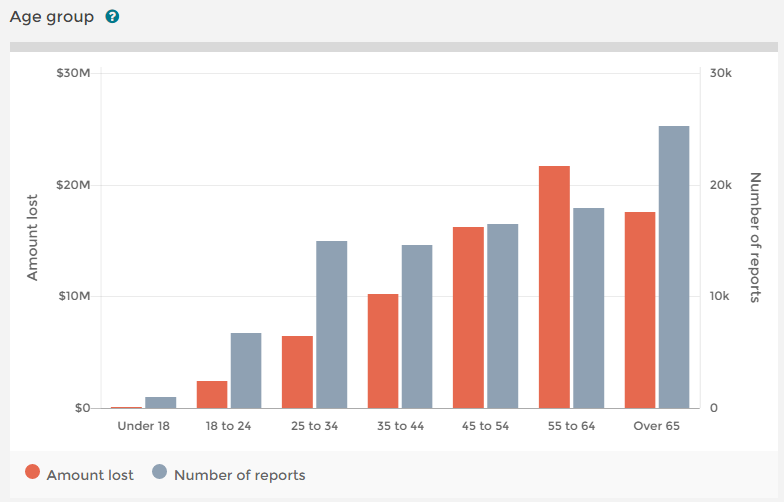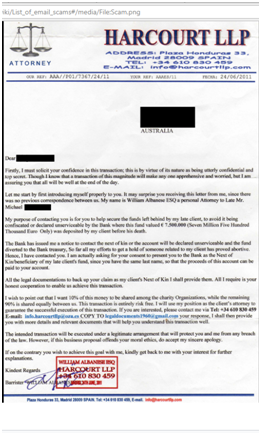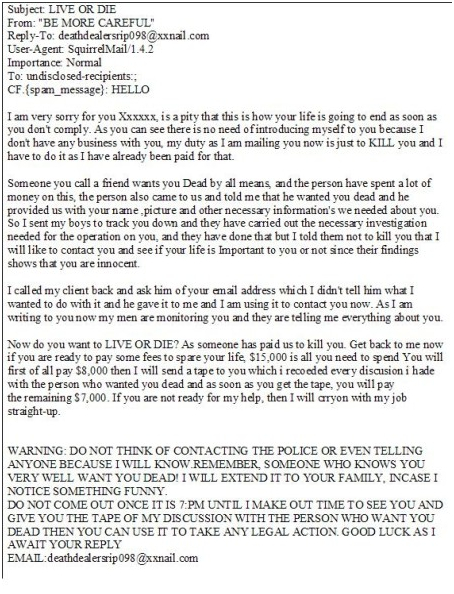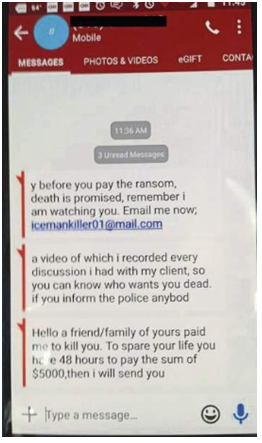Hitman Scam
The Hitman Scam is a menacing cyber threat where scammers pose as hired hitmen, demanding money from targets in exchange for not carrying out a supposed hit. This scam preys on fear and intimidation, but being informed can be your best defense.
WHAT IS HITMAN SCAM ?
Death is a deeply unsettling thought for most people, an inevitable reality that many fear. This inherent fear of mortality has become a vulnerability that certain unscrupulous individuals exploit. As scammers continuously evolve their tactics to deceive the public, one emerging strategy stands out due to its audacity and cruelty. In this scheme, fraudsters pose as 'hitmen', claiming they've been hired to end the life of the recipient. Their intent? To instill dread and panic, thereby coercing their victim into paying a substantial sum to buy their own safety. This chilling game of life and death showcases the lengths scammers will go to manipulate emotions for financial gain.
ABOUT HITMAN SCAM
Termed as the 'Hitman scam', this sinister tactic was initially unleashed by scammers around 2007. The modus operandi involves sending a chilling email to the target, with the scammer posing as a hitman allegedly hired by someone close to the victim – it could be a family member, friend, or acquaintance. The message comes with an ultimatum: the victim's life will be spared only if they transfer a specified amount to the so-called hitman. This psychological game, built on leveraging deep-rooted fears, is designed to push the recipient into a corner, making them act irrationally by paying up. Sadly, there have been instances where individuals, overwhelmed by fear, have fallen for this deceptive scheme.
Scammers adeptly manipulate the emotions of their targets, insinuating that someone close to the victim wishes them harm. The mere suggestion of a threat to one's life can be profoundly unsettling, making it difficult for the victim to discern the authenticity of the message. To exacerbate the victim's fears, the scammer often includes hyper-realistic details such as claiming they're under constant surveillance or that every move the victim makes is being watched. While a part of the victim might suspect the email is a hoax, the persuasive and professional tone adopted by these so-called hitman scammers can make their threats appear genuine and imminent. These fraudsters often advise victims to keep the matter confidential, asserting that sharing it could jeopardize their safety. Framing their demand as a lifeline, they insinuate that paying the stated sum is the victim's only chance at survival.
These scammers employ a mass email strategy, sending threatening messages to numerous addresses, regardless of their validity. They fabricate email IDs exclusively for this purpose, casting a wide net and awaiting responses. As they began to see success, these fraudsters diversified their tactics. They began to utilize text messages, delivering their threats directly to potential victims' phones. These scammers procure mobile numbers from dubious sources, and the personal nature of a direct text often gives their claims an added air of legitimacy. After all, many believe their personal numbers are private and thus any message received appears more credible. The primary goal of the scammer is to create an intimate connection with the victim, making the threat seem all the more real. Additionally, these scammers often use disposable or difficult-to-trace numbers, further obscuring their true intentions and origins.
HOW TO RESPOND TO A HITMAN THREAT VIA EMAIL OR MESSAGE
It's natural to feel alarmed and distressed upon receiving threats, especially when they hint at involvement from someone close to you. However, if you ever encounter such a situation, it's essential to remember the following steps:
GUIDELINES TO HANDLE HITMAN THREATS VIA EMAIL OR MESSAGE
Confronting threats, especially those involving harm, can be unnerving. If you ever receive such threats, consider the following guidelines:
- First and foremost, maintain your composure. Re-examine the message thoroughly; more often than not, you'll spot indicators suggesting it's a scam.
- It's typically a good idea to delete suspicious or threatening emails right away. By responding, you could inadvertently validate your email address to the scammer, leading to more spam or threats.
- Avoid engaging or responding to these intimidating emails or messages. If the threat feels genuine or particularly unsettling, report it to your local law enforcement immediately.
- Investigate the sender's email ID or phone number using online platforms that track scams. This might provide clarity about the sender's intentions or background.
- A significant majority of these threats are scams. Keep in mind that genuine threats rarely come announced via email or text. So, when in doubt, it's better to disregard and delete.
- If you choose to pursue the matter further, be cautious. It might be more effective and safer to involve law enforcement than to deal with the scammer directly.







